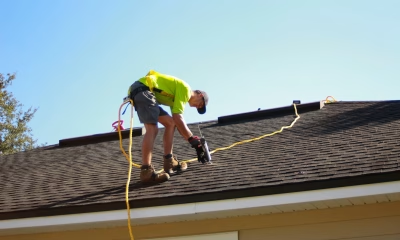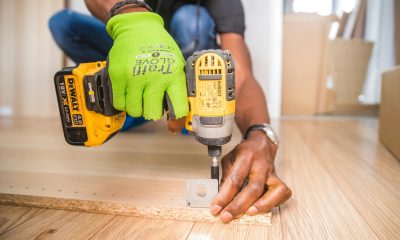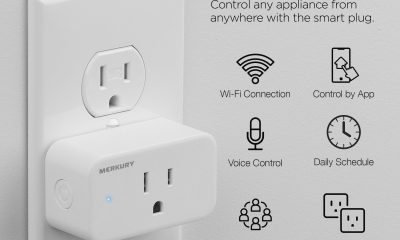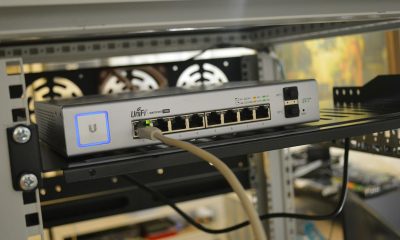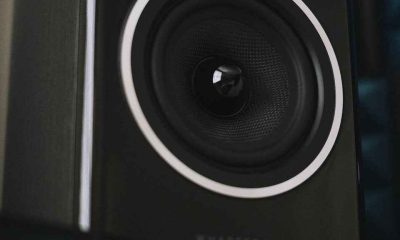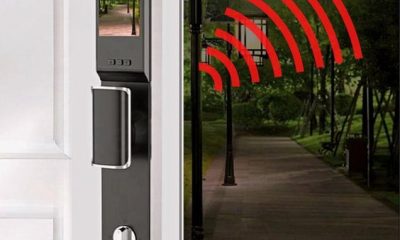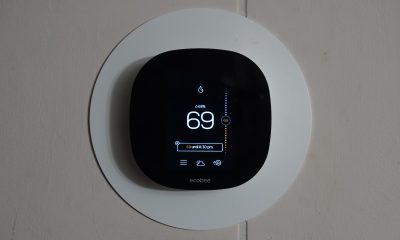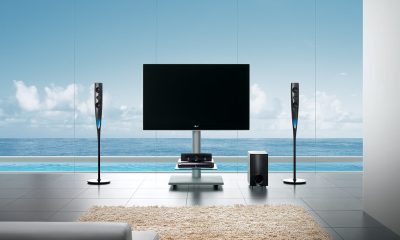DIY & Tutorials
A Complete Guide to Air Conditioner Repair and Maintenance: What Every Homeowner Should Know?

When summer temperatures rise, your air conditioner becomes essential to maintaining comfort indoors. However, like any machine, air conditioning systems require regular care to function efficiently. This guide offers an expert-backed, non-promotional overview of how you can identify issues early, understand the importance of routine maintenance, and ensure your cooling system operates safely and efficiently throughout the year.
Understanding Common Air Conditioner Problems
Recognizing early warning signs can save you from costly repairs down the line. Most homeowners encounter the following issues during peak usage:
-
Inconsistent Cooling: If your unit struggles to maintain a consistent temperature, the issue may lie with a refrigerant leak, duct blockage, or compressor failure.
-
Unusual Noises: Grinding, squealing, or rattling sounds can indicate mechanical wear or component misalignment.
-
Unpleasant Odors: Musty smells often signal mold growth in filters or ducts, while burning odors may point to electrical problems.
-
Sudden Energy Bill Spikes: If your bill increases unexpectedly, reduced system efficiency caused by dirty filters or malfunctioning components might be to blame.
Timely diagnosis can prevent minor faults from becoming major system failures. Always investigate early symptoms thoroughly.
Why Regular Maintenance Matters?
Routine maintenance is not just about preventing breakdowns; it’s an essential step in ensuring long-term performance, energy efficiency, and even indoor air quality.
Key Maintenance Tasks Include:
-
Replacing or Cleaning Air Filters: Every 1–3 months depending on usage and filter type.
-
Inspecting and Cleaning Coils: Both evaporator and condenser coils should be cleaned annually to maintain efficiency.
-
Thermostat Calibration: Ensures accurate temperature control and energy savings.
-
Electrical Component Checks: Tightening connections, checking capacitors, and measuring voltage are crucial for system safety.
Tip: Schedule professional inspections twice a year—ideally in spring and fall—to prepare for peak cooling and heating seasons.
The Role of Expert Technicians
Certified HVAC professionals bring critical value when it comes to diagnosing and fixing complex issues. Their training enables them to:
-
Identify refrigerant issues without causing environmental harm.
-
Handle high-voltage electrical systems safely.
-
Optimize system airflow for improved performance.
-
Use advanced diagnostic tools to locate subtle faults quickly.
Professional evaluations often uncover hidden inefficiencies, and many providers offer maintenance programs that include performance checks, cleanings, and priority repair service.
Benefits of Routine Maintenance Over Time
1. Improved Energy Efficiency
Well-maintained systems run with less effort, consume less energy, and reduce your monthly utility bills.
2. Extended System Lifespan
Much like routine oil changes for your car, preventive care for your A/C unit can extend its service life by several years.
3. Enhanced Indoor Air Quality
A properly serviced unit filters out allergens, dust, and contaminants more effectively—especially beneficial for individuals with asthma or respiratory sensitivities.
Addressing Specific Air Conditioner Issues
Cooling Inefficiencies
Caused by refrigerant leaks, clogged filters, or aging compressors. Regular filter changes and annual refrigerant checks can mitigate these problems.
Electrical Malfunctions
Wiring faults or failing thermostats can cause erratic system behavior. It’s best to avoid DIY fixes on electrical issues and consult a professional.
Noises and Vibrations
These are often signs of motor strain or loose parts. Mechanical inspections during routine servicing can prevent damage.
Airflow Disruptions
Blocked ducts, dirty fans, or malfunctioning blowers can reduce airflow. Cleaning and proper ductwork design help restore consistent performance.
Importance of Regular Maintenance
Routine maintenance plays a pivotal role in extending the lifespan of your air conditioning unit. Rocky Mountain professionals recommend regular check-ups twice a year ideally before the summer and winter seasons. During these check-ups, technicians clean and inspect critical components, ensuring the system operates efficiently. Services offered by rmhvacutah.com include comprehensive inspections that can prevent unexpected breakdowns and enhance energy efficiency.
Choosing a Trustworthy HVAC Service Provider
When it comes to hiring professional help, transparency, experience, and reputation are essential. Consider the following when making a decision:
-
Verified Certifications: Ensure technicians are certified and trained on modern HVAC systems.
-
Customer Reviews: Look for consistent positive feedback across multiple platforms.
-
Clear Service Options: Reputable companies clearly outline the services included in their inspections and repairs.
-
Service Guarantees: Look for workmanship warranties or satisfaction policies.
Indoor Air Quality: An Often-Overlooked Factor
Your air conditioning system doesn’t just cool the air it filters and circulates it. Dirty filters, uncleaned vents, or microbial buildup in coils can lower indoor air quality.
Best Practices for Healthy Air:
-
Use high-efficiency filters (HEPA or MERV-rated)
-
Change filters frequently (monthly in high-use seasons)
-
Clean ducts and vents annually
-
Ensure proper humidity control with system add-ons if needed
DIY Troubleshooting Tips Before You Call an HVAC Technician
Sometimes, simple fixes can resolve minor AC issues without needing a service call. Here are some safe, expert-recommended steps homeowners can take:
✅ Step-by-Step Checklist:
-
Check the Thermostat Settings
-
Ensure it’s set to “Cool” mode.
-
Replace the batteries if it’s a battery-operated thermostat.
-
-
Inspect the Air Filter
-
A clogged filter can severely limit airflow.
-
Replace if it’s dusty or over 60 days old.
-
-
Examine the Circuit Breaker
-
Check the electrical panel for a tripped breaker.
-
Reset if necessary, but avoid repeated resets (which indicate deeper issues).
-
-
Inspect Vents and Registers
-
Make sure furniture or rugs aren’t blocking airflow.
-
Clean visible dust buildup to improve circulation.
-
-
Look for Ice Buildup
-
Ice on the evaporator coil can indicate low refrigerant or airflow problems.
-
Turn the unit off and let it thaw before turning it back on.
-
Energy Efficiency Tips to Lower Cooling Costs
How to Keep Your Home Cooler Without Overworking Your AC:
-
Use Ceiling Fans Wisely
➤ In summer, fans should spin counterclockwise to push air down. -
Seal Air Leaks
➤ Apply weather stripping to windows and doors to prevent cool air from escaping. -
Install a Programmable Thermostat
➤ Automatically adjusts temperature when you’re away or sleeping. -
Close Curtains During the Day
➤ Sun-facing windows can dramatically increase indoor temperature. -
Maintain Outdoor Unit Clearance
➤ Keep at least 2 feet of clearance around your condenser to promote airflow.
Trusted Resources to Learn More (Expert-Verified)
These well-respected sources offer detailed HVAC guidance, safety tips, and energy-saving ideas:
-
U.S. Department of Energy (DOE) – Cooling Tips
➤ https://www.energy.gov/energysaver/cooling
Offers science-backed strategies to reduce cooling costs and maximize performance. -
Energy Star® – HVAC Maintenance Guide
➤ https://www.energystar.gov
Learn how to hire certified contractors and maintain your system efficiently. -
ACCA (Air Conditioning Contractors of America)
➤ https://www.acca.org/home
Find licensed HVAC professionals and industry standards for residential systems. -
Consumer Reports – Air Conditioner Buying Guide
➤ https://www.consumerreports.org
Understand unit types, energy ratings, and repair considerations before investing in a new system.
Planning a New HVAC Installation? Ask These Questions
If your system is older than 10–15 years, it might be time for an upgrade. When comparing quotes and brands, consider the following:
-
Is the system ENERGY STAR certified?
-
Does the quote include duct sealing or modifications?
-
What is the SEER2 or EER rating?
-
Are there local utility rebates or tax credits?
-
What warranties are included on labor and parts?
Indoor Air Quality Tips Beyond the AC System
To improve air quality further, especially for allergy or asthma sufferers:
-
Use an air purifier with a HEPA filter in high-traffic rooms.
-
Install UV lights in your HVAC system to reduce mold and bacteria.
-
Have your ductwork cleaned professionally every 3–5 years.
-
Add houseplants that are known to purify indoor air (like snake plants or spider plants).
Want to Go Further?
Here are a few more content ideas you could develop later to build topical authority (E-E-A-T) on your site:
-
“Signs It’s Time to Replace Your Air Conditioner”
-
“How to Prepare Your AC System for Summer”
-
“The Difference Between Ducted and Ductless Cooling Systems”
-
“Homeowner’s Checklist: Annual HVAC Maintenance Planner (Free PDF)”
Final Thoughts
Air conditioners are more than luxury they’re an essential part of home comfort and safety during extreme weather. Understanding how your system works, recognizing early signs of trouble, and performing or scheduling regular maintenance can significantly enhance performance, lower costs, and protect your health.
Remember: Preventive care is always more affordable than emergency repairs. Treat your air conditioning system like any other investment in your home—with regular attention, professional care, and informed decision-making.
-

 Guides2 years ago
Guides2 years ago10 Best Apps To Control All Your Smart Home Devices.
-
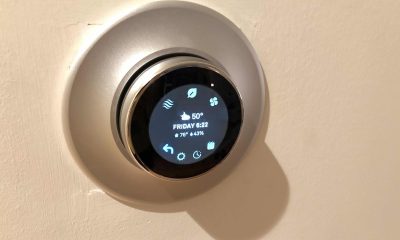
 Gadgets3 years ago
Gadgets3 years agoDoes Nest Thermostats Contain Cameras Or Microphones? Is It Safe For you?
-
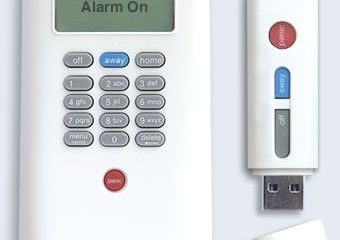
 Gadgets3 years ago
Gadgets3 years agoWhat Is The Purpose Of Red Button On The SimpliSafe Keypad?
-
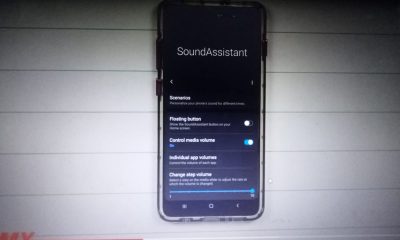
 Gadgets3 years ago
Gadgets3 years agoComplete Guide About Equalizer settings for Samsung-Soundbar
-
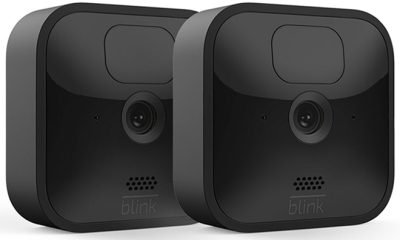
 Accessories2 years ago
Accessories2 years agoBlink Camera’s Temperature Sensor Settings, and More
-

 Accessories2 years ago
Accessories2 years agoCan Siri Control Samsung Televisions And Are Samsung TVs Homekit Compliant?
-

 Gadgets3 years ago
Gadgets3 years agoFitbit Symbols Meaning: What Do The Fitbit Icons Mean?
-

 Accessories2 years ago
Accessories2 years agoCan Ring Cameras and Other Ring Devices Be Connected to Multiple Networks?












